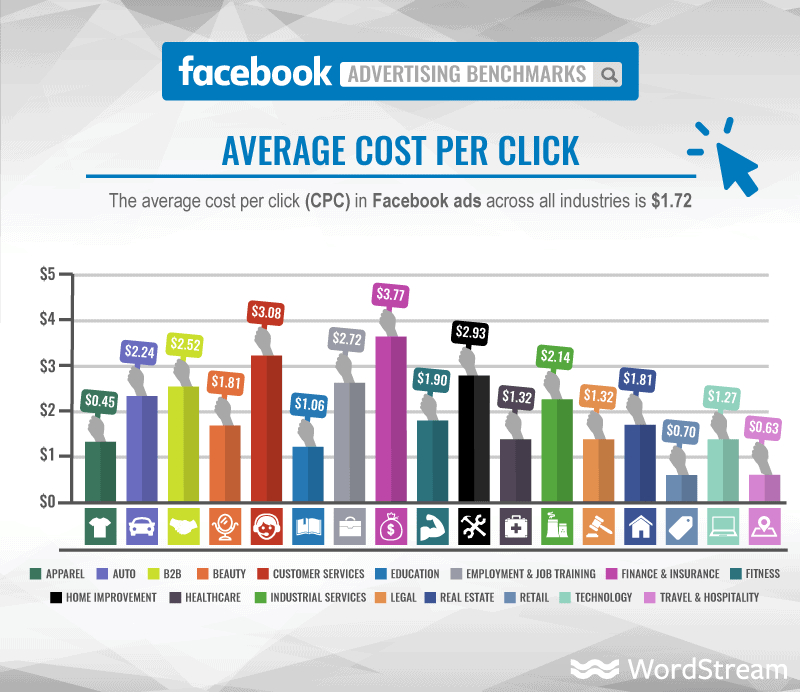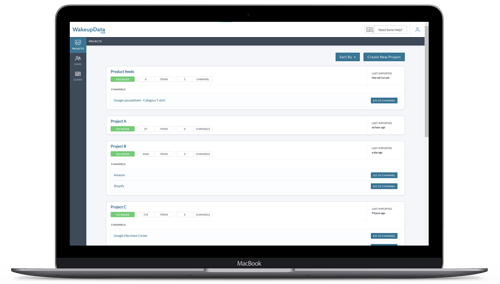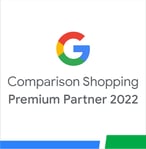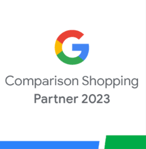Inside a Digital Marketer’s Mind: The future of PPC [Expert Roundup]
Posted on April 27, 2020 (Last Updated: December 12, 2022)
The world of digital marketing is one that is constantly changing to adapt to new trends, innovations and, most recently, global events.
To get an insight into the mind of a digital marketer, we've spoken to experts about the current state of the PPC industry and to get their comments and ideas on new trends, required adaptations and future changes.
In this article, we've pulled together the views of 17 marketing experts. We’re finding out what will change this year and what recommendations they have for digital marketers everywhere to capitalize on in 2021.
1. The impact of Covid-19 on the PCC Industry

It would be an oversight not to start this article with a look at the impact that the ongoing Covid-19 crisis has had, and will undoubtedly continue having, on the PPC and wider ecommerce industry in general.
As discussed by some of our experts, although wide-ranging and damaging in many cases, there are some reasons for a positive outlook as we look forward to the gradual recovery from the coronavirus’ consequences:
High Search Volume but lower buyer intent
From what we've seen, Coronavirus has been having a huge impact on our clients as well as our own advertising. We're still seeing the search volume there, but buyer intent has definitely taken a hit with this going on right now. Many users are unsure about their income and jobs, so from what we have seen, there has been less spending on
non-essentials.Now appears to be a time of great potential for large ecommerce advertisers, as there is less competition and more people home all day and at least browsing.
It's a great time to collect email addresses and get people into the funnel for future marketing efforts.”
Connor O’Hanlon, PPC Operations Manager at SmartSites
Openness and transparency the key to maintaining client trust
We're very fortunate to have been working with some clients for over ten years. In that time, we've built up a lot of trust. We've been giving them daily updates, recommendations and suggestions and they have pretty much agreed to everything we've put in front of them.At this time more than ever, you have to be open, honest and transparent with your client, that means reporting on the successful and unsuccessful work the same.
Our ability to be able to move budget from one channel to another (in this case to social) has allowed us to be very agile on behalf of the client. It certainly has been a challenge, but one I am happy to say our team has risen to the challenge."
Dez Calton, Managing Director Optimyzd
Unique Services set-up to help those most in need
The sector where we have seen the biggest drop is massage chairs and accessories, but there have been some positives to come out of it. Although on one side we saw an 80% decrease in sales of massage tables over the past week, there was a 40% increase in sales for accessories.
Another interesting development is that we have now seen NHS facilities purchasing certain massage tables as hospital beds for the pop-up testing centres around the UK. One of our clients has now set up a system to help out and provide a unique service to these customers in this time of need."
Charlie Clark - Minty Digital
3 Pandemic Fluctuation Patterns
We also spoke to Nick Handley of Fluid Digital about the overall impact of the COVID-19 outbreak on the PPC industry and ecommerce.
He told us how the long-term lockdown of the high street is leading retailers to seek new pastures by moving their revenue crop online - which has already proven fruitful for some.
Fluid Digital are using three different core strategies based upon previous pandemic models for demand fluctuations (see below) and developing a strategy for each as a base to build upon.
This data was generated based on previous pandemics in Asian countries during SARS, MERS & the Fukashima disaster.

We’re finding that necessity-based products such as fresh food and household supplies are falling into the rapid stabilisation model with fulfillment being the main issue for the clients we’re working with. To combat this we’ve actually had to increase our ROAS targets and limit our visibility during peak trading to stem the flow of conversions to not put them over capacity. We’ve been doing this by using a 24/7 bidder, decreasing and increasing bids with 2-3 latency periods."
The New Consumers’ report from Rakuten Intelligence that found US ecommerce spending up ~36% YoY from Mar. 12-Mar. 15, “almost twice the growth rate it had been generating this year.

Those clients falling into the short term party loading curve are generally selling products such as healthcare and vitamins. Nick's strategy for these clients is to front-end advertising - spending budget at an accelerated rate to flood the market with their products to get as much short-term gain as possible.
As we start seeing a decline in impressions we’ve stepped back our advertising to a steadier pace, concentrating on building in remarketing funnels to remarket to those that will need to replenish stocks using layered audience lists, in which users get different messages or higher bid adjustments dependant on where they fall in the re-purchasing funnel.
Lastly, the dip and rebound model, in which most fashion clients fall into and undoubtedly the clients that have seen the negative side of COVID trends. We’ve shifted our focus for this section of clients, gearing more towards long term brand awareness and making use of display and social over that of Google Shopping and performance-based marketing.
The tactic of Fluid Digital is to ensure the brand stays relevant while consumer intent is down, then to start ramping up performance-based marketing efforts alongside remarketing as consumer intention changes and people start purchasing again.
Overall, we’re implementing a few different strategies depending on what model each client fits into and, as we work with ecommerce clients only, all do fall into one of these 3 models.
All channels are seeing a mixed bag of results, which is very much dependent on the retailer and the products they sell. Amazon is working incredibly well for essentials and gift-based products whilst Google/Microsoft are great channels for home and garden.
Nick Handley | Head of Performance Marketing, Fluid Digital
2. The Transformation of the PPC Industry
“I'm a big believer in needing to have more of a broader focus on marketing rather than focusing so much on PPC, as has been the case for some in the past.”
Arianne Donoghue, Founder at Tempest Marketing
Many of those whom we spoke with discussed the forthcoming ‘transformation’ which is going to hit the PPC industry. Namely, the question of how to run paid media campaigns which don’t rely as heavily on programmatic data and cookie-based targeting of individuals.
Arianne Donoghue from Tempest Marketing spoke of the transition within PPC from a data-focused industry towards one which places more emphasis on creativity, dynamic messaging and writing ad copy:
“We're going to have to fundamentally reevaluate what the role is of someone that does PPC, what our campaigns are designed to do and then how we try and merge those two together.”
According to Arianne, there will need to be a re-evaluation of what an effective PPC campaign looks like. Included in this transition should be an evaluation on the part of all PPC specialists of where their current technical skills lie and whether they should improve their focus and understanding to meet this change.
“A lot of the corporate type clients are in-housing a lot of the marketing resources or moving to much bigger kinds of agency groups who have a product protocol that we don't have. So it's meant that the tech companies are required to source out but probably don't have the budget to go to the biggest agencies in the country.”
3. Increase in the Cost of Ads:
“A lot of people focus too much on acquiring a customer rather than focusing on repeat purchases of previous customers.”
Jack Shepherd - Co-Founder at The Social Shepherd

Average CPC can vary greatly depending on the industry (Source: WordStream)
Jack also told us how it can currently cost anywhere from three to five pounds per purchase to an audience that doesn't know who a specific client is:
“But because they (the client) have spent so much on ads when we are getting into Black Friday, we're able to reach the people who've engaged in the paid ad, as well as people who previously have been on the site, the return on ad spend just goes crazy.”
Jack sees an increase in ad cost as a foregone conclusion through 2020. He told us how nearly one in every five posts in a social media feed is now an ad.
“They just need to put up more placements, but ultimately it's just going to get more and more expensive, which is why people need to focus on retargeting especially.”
4. The Rise of Social Shopping Ads vs Google & Amazon

“I'm guessing that at some point social channels like Pinterest, Instagram and Facebook are going to be a lot more useful for digital marketers than maybe Google Ads.”
June Gil-Fernandez - Advertising Manager - CTI Digital
June told us how many ecommerce websites she has spoken to are also focusing on Amazon as a distinct channel from their online store itself. As well as the rise in social shopping ads she sees an increase in the number of users turning to marketplaces like Amazon and eBay as places to run ad campaigns too.
Arianne Donoghue - Founder at Tempest Marketing:
“I would say probably for the next 12 months, Instagram and Amazon will be the channels with the most attention. Amazon has really lived up to their potential. It is something that you need to be aware of for the threat that it can cause to the ecommerce clients that you work with.”
Arianne only sees Amazon becoming bigger while Facebook will attempt their growth through Instagram to combat the growing fatigue with Facebook ads.
“Beyond that, who knows when you've got people talking about channels like TikTok and how that can be monetized.”
Despite Google pushing features like Smart Shopping campaigns - she sees it as being less a case of Google growth in the next few years, and more a case of Google pushing these ‘opaque campaigns’.
“In exchange people are probably going to want more visibility of where their money goes so that might be more likely to go towards Amazon and Instagram.”
Ahmed Chopdat PPC Director at Circus PPC
When asked about the role of Amazon for his clients, Ahmed told us how results can vary dramatically from client to client. As a lower funnel channel, Amazon works well from a conversion rate and cost of sale point of view:
The issue with Amazon is that it’s a phenomenal overall platform and can help you with your overall brand and growing your overall brand presence. Only using it to run ads isn’t the right way to go moving forwards. The nature of the Amazon platform is why it has lived and thrived alongside Google, alongside Facebook, alongside Bing and it worked so well.”
5. Greater Trust in Managing Ad Budgets
“You have to build a trusting relationship because it should be a long-term view where we’re working to a North Star goal for all our clients”
David McAndrew - PPC & Display Director - TwentySix Digital
Alongside this predicted continued rise of Amazon, another subject which arose frequently from our conversations was a wish among ecommerce clients to receive a more granular breakdown in terms of attribution:
“There is an increasing desire for retailers to know every penny and click of their spend. When looked at from within the customer's life cycle, if you are trying to establish the highest level of trust - then it's better for everybody I think.
Clients are moving budgets around by channel and effectively breaking the users journey. Would the path to conversion still exist if the channel isn’t delivering the last conversion?”
According to David, the biggest change regarding Google will be from a last-click attribution model to a non-last click attribution model.
“Clients will then need to understand how this impacts their entire acquisition activity and not on an individual channel by channel basis. If a client wants to hit an ROI of 10:1 it should be across all channels instead of cutting the spend on individual channels that don’t receive the total 10:1 ROI.”
As an agency, our clients have a range of client spend. They trust us to spend their money like it’s our own. There’s an opportunity for brands to make bolder decisions and trust is hugely important...You can become very bogged down in the daily numbers – it’s important to step back and look at the overview”.
6. Automation: Will it Take Over Human Interaction?

Too much reliance on automation can quickly ruin things”
Rob Bridgens - Head of Paid Search and Affiliate Marketing - Reflect Digital
Rob outlined that over-reliance on automation can be a mistake. Client trust is hard to regain after an AI mistake, and with so many factors to manage like bid management, budgets, and keywords - it should never become a ‘set and forget’ scenario.
“If AI is left to its own devices it can go into a death spiral where it’s left to its own devices and it’s taken a piece of poor, or out of context data, and it keeps optimizing and optimizing and shutting important keywords off.”
Tom Ritchie - Head of Digital - RH Advertising
“It's a fine balance and automation can take on a lot of the repetitive tasks. But you still need that human touch.
And if automation is optimizing the wrong data out of context and it keeps optimizing it, it's just gonna be in a death spiral really becoming worse and worse per update. So it's definitely a delicate balancing act.”
7. PPC and Charity work
“They are helping them to reach fundraising goals per month for free and also create an awareness around the charity work that they're doing.”
Antonios Ilias, Digital Marketing Executive, Digital Glue
“We have a few charities for whom we are running their Google Ad accounts. Google Ad Grants provide $10,000 for free advertisement per month from Google so we have some which are performing well. ”
8. A challenge to find experts in the PPC industry?

“I think it's just not a sexy job to be honest!”
Jack Shepherd - Co-Founder at The Social Shepherd
In terms of their PPC and paid media departments, it seems to be the consensus from many of our interviews that they often can't find enough people to fill the roles. Regardless of how the economy is performing, the uncertainty with Brexit and other factors, PPC is an industry that's almost future-proof.
Jack Shepherd told us the reason is that often people don’t start out aiming to get into PPC and paid media:
“I think they just fall into it and then start to enjoy it. We've got those people taking courses for Facebook Ads and other channels. So it's made it interesting and more attractive to them.
The good thing is that it is a skill that can be learned reasonably quickly. It's whether you want someone that might do things slightly differently to you or you want someone to learn under you and do it your way. I guess there's advantages to both.”
June Gil-Fernandez - Advertising Manager - CTI Digital
“Most of the time when I meet graduates, they don't know a lot of the practical aspects of PPC. So you're going to have to go into those hires knowing you're going to have to spend quite a bit of time training them.
But it's a challenge to find someone who has experience, someone who's been in an agency for say 3 months who doesn't need a great deal of training.”
9. Product Feed Management: In-house or through a third party tool?

There’s a disconnect between the shopping feed management agency and the PPC agency as to where the responsibility lies in terms of optimizing the feed for performance.”
David McAndrew - PPC & Display Director - Twentysix digital
Clients are asking us how they can get more out of Google Shopping, because from a retail perspective it’s huge - and from a mobile point of view it’s even bigger - so it's vital these clients have an agency in place that handles the shopping feed.
With that in mind we’ve decided to bring a (feed marketing) tool in-house and we’ve taken on the responsibility of creating the feed from scratch or optimizing an existing feed.
We started with data feeds in June and we’re advising our client services team on how to sell it and why we’re doing it instead of the client.”
10. PPC VS SEO - which to prioritize?
Having an effective SEO strategy in place is just as important as the right PPC campaigns for online sellers. For agencies offering these services, we asked which they saw as the most important for their business in 2020:
Connor O’Hanlon, PPC Operations Manager at SmartSites:
“It's more web development and PPC at this point. We do a lot of SEO too, but I think where we're seeing most of our growth year-over-year, and what most of our prospective clients are interested in, is PPC.”
Alex Hogan, Head of Paid Media at PushON
“We're only going to focus on PPC because that's what we're good at - it’s what we understand really well and that's what we want to focus on.
If we were to expand our offering it would be bringing a design team in house just to help with PPC. Something that actually works alongside paid search as opposed to a totally different offering.”
Matt Laybourn, Head of Performance Marketing & Digital at Direction Group
It's interesting for us because some of the types of keywords, for the types of products we sell, can be really quite disjointed, so bidding on those types of keywords can be quite challenging.
Paid media for search in particular is a lot more challenging. But it can have its benefits if you do your research into the type of customers you're aiming for. "
11. Top tips for e-commerce PPC in 2021

Pay really close attention to the value of each traffic segment, because this tells you how much you can afford to pay per click. Try to estimate the revenue value of a click from each keyword, region, season, and so on, including the repeat customer value.”
Clay McDonald, Director of Operations, Delegator
Amazon has been growing quite a bit in the past last year, especially in terms of paid marketing, we’ve been running more ads there and have seen this trend growing indefinitely.
So if all you're advertising on Google is with PPC ads, then outliers can happen, which can set you back. But what we look at is giving clients a wider reach across different platforms because what you don't want to do is have all your eggs in one basket as a business.”
Ahmed Chopdat PPC Director at Circus PPC Agency
12. Experiences with feed management and data optimization
“Awareness is up but maybe not understanding”
Rob Bridgens - Head of Paid Search and Affiliate Marketing - Reflect Digital
General client knowledge is the same but they are more aware – However, some clients seem to think it’s easier than it is.
Clay McDonald, Director of Operations, Delegator
“Without a foundation of good product data, the entire "plumbing" and strategy for PPC will be limited. Everything from the algorithms that match shopper intent to individual products, to the way that product data is displayed to the human eye matters, and can make the difference for whether you earn a new customer or not.”
Byron from Paid Media Principles told us that feed management has been a relatively small part of the agency, but has grown in importance for them as the company has grown.
“When I joined Paid Media Principles just over two years ago, PPC was a relatively small part of the agency's service offering. We've now got a dedicated team of four people working in paid media running feed-based and non-feed based campaigns across multiple channels and we're onboarding clients all the time.
We’d touched on feed optimisation before, where we could, but I can see a growing importance in this niche for 2020 given the rise of dynamically targeted campaign formats such as Facebook Dynamic Product Ads.”
Byron Marr, Paid Media Strategist, Paid Media Principles
Conclusion - Inside the mind of a digital marketer.

From across this wide array of predictions and suggestions one message is clear. For digital marketers to thrive in 2020, adaptation is going to be vital. Understanding your customers and adapting your data is key to digital marketing success.
“Without a foundation of good product data, the entire "plumbing" and strategy for PPC will be limited.”
Clay McDonald, Delegator
This year, having the tools to help you adapt your strategies is going to be more crucial than ever. With WakeupData's feed marketing tool, you can manage all your ecommerce activity for hundreds of sales channels from a single place. What’s more, you can get insights into how your feeds are performing on a granular, product-by-product level - allowing you to take action as soon as it’s needed.
You can see our feed marketing tool for yourself by booking a demo meeting below, or subscribe to our updates to get more ecommerce industry insights into your inbox.




